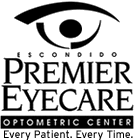
Spring is in the air. But along with the beauty of the blooming flowers and budding trees, comes allergy season. The high pollen count and allergens floating in the fresh spring air can certainly wreak havoc on the comfort level of those suffering from allergies, causing an otherwise nature-loving individual to seek respite indoors. Your eyes are often one of the areas affected most by allergens which can leave them red, itchy and watery, making you feel achy and tired.
Tree pollens in April and May, grass pollens in June and July and mold spores and weed pollens in July and August add up to five months of eye-irritating allergens. That is quite a long time to stay indoors!
Don’t hibernate this spring and summer!
Here are some practical tips to keep your eyes happy as the allergy season comes upon us.
- Avoid rubbing your eyes. This makes the symptoms worse because it actually sets off an allergy cascade response which causes more inflammation and itch. Plus, rubbing might lead to a scratch which will cause greater, long term discomfort.
- Plan your outdoor time wisely. One of the seasonal allergens that disturbs eyes is pollen, so it is a good idea to stay indoors when pollen counts are high, especially in the mid-morning and early evening.
- Wear sunglasses outside to protect your eyes, not only from UV rays, but also from allergens floating in the air.
- Check and clean your air conditioning filters to make sure they are working properly to filter out irritants.
- Use a humidifier or set out bowls of fresh water inside when using your air conditioning to help moisten the air and ensure that your eyes don’t dry out.
- Taking a shower or bath helps wash off allergens from the hair and skin. Cool down with some cool compresses over your eyes. This reduces the inflammatory response and the itchiness.
- Allergy proof your home:
- use dust-mite-proof covers on bedding and pillows
- clean surfaces with a damp cloth rather than dusting or dry sweeping which can just move dust to other areas or into the air
- remove any mold in your home
- keep pets outdoors if you have pet allergies
- Remove contact lenses as soon as any symptoms appear. Some contacts can prevent oxygen from getting to your eyes and tend to dry them out or blur vision due to oil or discharge build up under the lens. This will just worsen symptoms and cause greater irritation. Further because allergies can swell the eyes, contacts might not fit the way they usually do, causing discomfort.
- Speak to your optometrist about allergy medications or eye drops that can relieve symptoms. Certain allergy eye drops are not compatible with contact lens wear and in fact can bind onto the lens and cause further irritation. If your allergies are severe and you don’t want to stop contact lens wear, then ask your OD for a prescription allergy drop that can be applied before inserting your contacts. This may help prevent the allergic response and provide more comfortable lens wear.
These are only a few steps you can take to make your eyes more comfortable during allergy season. Remember to seek medical help from your eye care professional if symptoms persist or worsen.


*Closed daily for lunch between 1pm to 2pm